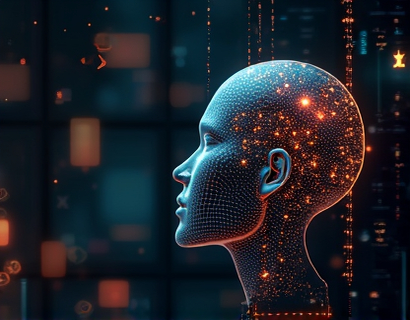AI Chat Avatars: Pioneering the Future of Digital Conversations
The digital landscape is undergoing a profound transformation with the advent of AI chat avatars, sophisticated entities designed to engage users in meaningful and intelligent conversations. These avatars are not mere simulations but advanced algorithms capable of understanding, processing, and generating human-like text. This revolution in digital interaction is reshaping how we communicate online, offering a more immersive and insightful experience. For tech enthusiasts and anyone intrigued by the fusion of artificial intelligence and communication, this evolution is a fascinating topic worth exploring.
The Emergence of AI Chat Avatars
The concept of AI chat avatars is not new, but recent advancements have brought them to the forefront of technological innovation. Initially, chatbots were limited to predefined responses and basic scripting. However, with the integration of machine learning and natural language processing, these entities have evolved into dynamic conversationalists. They can now understand context, maintain conversation flow, and even exhibit personality traits, making interactions feel more natural and engaging.
Technological Foundations
The backbone of AI chat avatars lies in several cutting-edge technologies. Natural Language Understanding (NLU) enables these avatars to comprehend human language, discerning intent and context. This is complemented by Natural Language Generation (NLG), which allows the avatar to craft coherent and contextually relevant responses. Machine Learning (ML) algorithms power these processes, continuously learning from interactions to improve performance and adapt to user preferences.
Deep learning, a subset of ML, plays a crucial role in enhancing the conversational capabilities of AI chat avatars. Neural networks, particularly recurrent and transformer models, are adept at handling the complexities of human language. These models can process vast amounts of data, enabling the avatar to generate responses that are not only accurate but also nuanced and contextually appropriate.
Enhancing User Experience
The primary goal of AI chat avatars is to enhance user experience by providing seamless and insightful interactions. Unlike traditional chatbots, these avatars can engage in multi-turn conversations, maintaining context and memory of previous interactions. This capability allows for more personalized and meaningful exchanges, making users feel understood and valued.
For instance, in customer service scenarios, an AI chat avatar can navigate through complex queries, providing step-by-step solutions and even empathizing with user frustrations. This level of engagement not only resolves issues more efficiently but also builds trust and loyalty. In educational settings, these avatars can serve as interactive tutors, adapting to the learning pace of each student and offering tailored explanations and feedback.
Applications Across Industries
The versatility of AI chat avatars makes them applicable across a wide range of industries. In healthcare, they can assist patients with symptom checking, appointment scheduling, and providing health advice, all while ensuring confidentiality and accuracy. In finance, chat avatars can handle transactions, offer investment insights, and guide users through complex financial products, enhancing user experience and security.
The retail sector has also embraced AI chat avatars, using them for product recommendations, order tracking, and customer support. These avatars can analyze user preferences and shopping history to provide personalized shopping experiences, driving customer satisfaction and sales. In the realm of entertainment, chat avatars can create immersive experiences, from virtual guides in theme parks to interactive characters in video games, enriching user engagement and enjoyment.
Challenges and Considerations
Despite their numerous benefits, AI chat avatars face several challenges that need to be addressed. One major concern is the ethical use of these technologies. Ensuring user privacy and data security is paramount, as chat avatars often handle sensitive information. Transparency in how data is collected, stored, and used is essential to build user trust.
Another challenge is the potential for bias in AI algorithms. Since these avatars learn from existing data, they can inadvertently perpetuate stereotypes or inaccuracies. Continuous monitoring and updating of the training data are necessary to mitigate these risks. Additionally, the emotional and social implications of human-AI interactions must be carefully considered to avoid negative psychological impacts.
Future Prospects
The future of AI chat avatars is promising, with ongoing research and development pushing the boundaries of what these entities can achieve. Advancements in emotional intelligence and social understanding will enable chat avatars to connect on a deeper level, recognizing and responding to human emotions. This could lead to more empathetic and supportive interactions, particularly in mental health and counseling services.
Integration with other technologies, such as augmented reality (AR) and virtual reality (VR), will further enhance the immersive capabilities of chat avatars. Imagine engaging in a virtual tour guided by an AI avatar that can adapt to your interests and provide real-time information about the surroundings. The possibilities are vast, and the potential to transform various aspects of our digital lives is immense.
Conclusion
AI chat avatars represent a significant leap forward in digital communication, offering a blend of intelligence, personalization, and interactivity. As these technologies continue to evolve, they will play an increasingly vital role in shaping our online experiences. For those interested in the intersection of AI and communication, the journey into the world of AI chat avatars is both enlightening and exciting, promising a future where digital conversations are as rich and meaningful as their human counterparts.























